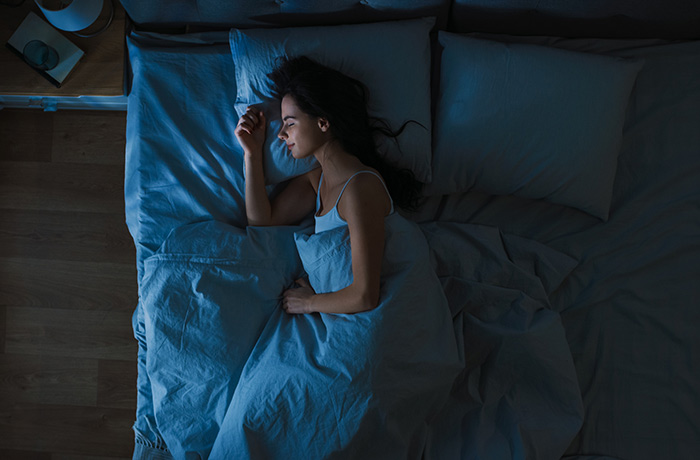
Despite the benefits of getting a good night’s sleep, Americans continue to lose valuable shuteye. In fact, according to CDC data, the percentage of employed adults who reported snoozing an average of six hours or less in a 24-hour period rose from 28.4% during 2008–2009 to 32.6% during 2017–2018.
Even less encouraging are the sleep problems resulting from the COVID-19 pandemic. “Fear and anxiety about the disease can be overwhelming and cause strong emotions in adults and children,” the CDC noted.
These strong emotions are disrupting sleep in the form of strange or frightening dreams and insomnia. “With parents or individuals working from home, kids out of school, and the day-to-day news and stress of the situation, it’s not surprising our sleep is suffering,” said Dr. Tyler Murphy, medical director of Holland Hospital’s Lifestyle Medicine program. “This is troubling because sleep has a direct impact on mood, performance and the body’s immune response––all things that can potentially make you more prone to getting sick.”
Focusing on self-care, such as getting quality sleep, can benefit your physical and mental health, particularly in times where anxiety is ramped up. To help you understand why sleep is so important, Dr. Murphy offers answers to some common questions:
Does sleep affect your ability to fight illnesses like COVID-19?
Yes. Sufficient sleep (usually anywhere between seven and nine hours per night for most adults) supports the body’s natural defense system, reducing the risk of infection and improving outcomes for those fighting the virus.
Why are people currently experiencing additional challenges with sleep?
There are many things disrupting people’s sleep schedules right now, from information overload to lack of daytime structure to depressed mood and prolonged napping. “People are also spending practically every waking moment on their electronic devices,” Dr. Murphy said. “The blue light from these screens tells the brain to stop producing melatonin [the sleep hormone that helps you fall asleep].”
Can sleep enhance mood and productivity?
Sheltering at home without our usual coping outlets, such as face-to-face social support and exercise, can impact how well we feel and function. In these circumstances, optimal sleep can help regulate mood, enhance brain function, and boost energy and productivity throughout the day.
What can you do to get better sleep?
Perhaps now more than ever, sleep is critical to your well-being. Here are some tips to help you rest easier:
- Follow a schedule. Determine your sleep need, then make that amount a priority. Try to get to bed and wake up at the same time every day. Incorporate routine into your life as much as possible, including showering and dressing, even if you’re not leaving the house.
- Wind down before bed. Do something just for you to wind down before bed. This could include stretching or meditating, listening to soothing music, or light reading. Put away the screens at least an hour before turning in and avoid monitoring COVID-19 news at night.
- Build an ideal sleep environment. Keep your bedroom temperature cool, wear an eye mask or use blackout shades, and/or block out outside distractions with a white noise machine.
- Avoid napping. If you must nap, rest for only 30 minutes and before 2 PM.
- Manage stress. Gain better control over stress––whether it’s finding a new hobby like painting or baking, doing workout videos every day, or practicing deep breathing exercises. If stress becomes unbearable, consider seeking counseling.
By focusing on four key areas of wellness—nutrition, exercise, sleep and mental health—our Lifestyle Medicine program can help you live a healthier, longer life. To learn more, call (616) 494-8387.
